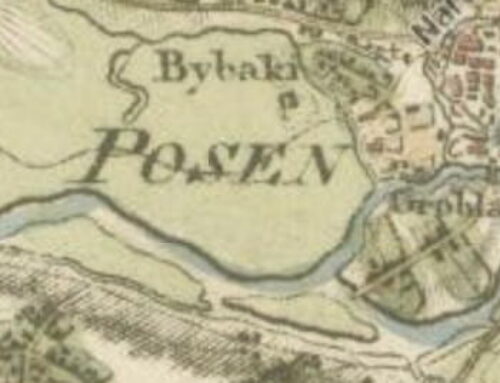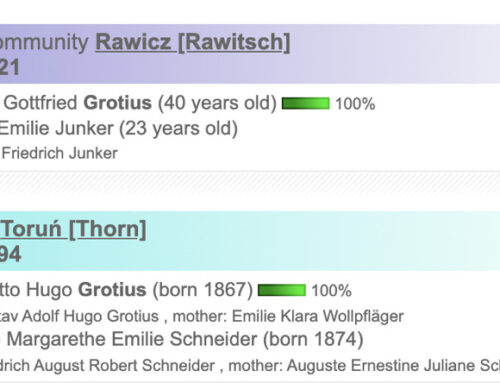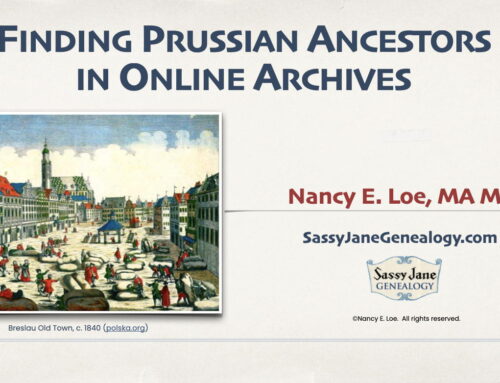 Translating Meyers Konversations-lexikon is a snap thanks to this new site. Have you used Meyers Konversations-lexikon?
Translating Meyers Konversations-lexikon is a snap thanks to this new site. Have you used Meyers Konversations-lexikon?
The gazetteer Meyers Orts- und Verkehrs-Lexikon des Deutschen Reichs (English title: Meyers Commercial Gazetteer of the German Empire) is an essential resource for German genealogy researchers. Meyers Orts is available in print at libraries and at Ancestry and FamilySearch.
But for English-speaking researchers, Meyers Orts can be tricky to use. This historical reference work is, of course, published in German and in Fraktur typeface. An additional complication for monolingual English-speaking researchers (like me) is the frequent use of abbreviations. When you don’t speak German, it’s hard to know what word is being abbreviated. And the type can be very small for aging eyes to see. (Update: the Meyersgaz site is great for this resource.)
While there is no substitute for the seminal Meyers Orts gazetteer, another Meyers publication may also help. Meyers also published the Meyers Konversations-lexikon. Full title: Großes Konversationslexikon: Ein Nachschlagewerk des allgemeinen Wissens. Sechste, gänzlich neubearbeitete und vermehrte Auflage. Leipzig und Wien 1905-1909. (English title: Meyers Large Encyclopedia. A reference book of general knowledge. Sixth, completely revised and enlarged edition. Leipzig and Vienna from 1905 to 1909).
Some of the same information found in Meyers Orts is also in Meyers Konversations-lexikon. This “Large Encyclopedia,” includes concise information on a city, town, or village. Included is geographic location, population, province, civil registry offices, churches and synagogues, all valuable information when searching for ancestors. Also included in each entry is information on civic organizations, institutions, schools, agriculture, factories, businesses, governmental organizations and hierarchy, transportation, and more.
Using Meyers Konversations-lexikon is relatively easy thanks to the digital version at Wörterbuchnetz, from the Trier Center for Digital Humanities at the University of Trier. Their digital edition of Meyers Konversations-lexikon uses the Roman alphabet, has adjustable type size, an excellent search interface, and best of all, when you turn on the translating function of your browser, the gist of each entry is easily readable in English.
The entry in Meyers Konversations-lexikon at Wörterbuchnetz for one of my ancestral villages, Rawitsch, Posen, Prussia:
And the same entry translated to English by the website:
Check out Trier’s other dictionaries online at Dictionary Network. And one other resource to help you make sense of Meyers Orts and Meyers Konversations-lexikon is the Abbreviation Table for Meyers Orts at FamilySearch.org.
My aging eyes and I thank the Trier Center for Digital Humanities and the Competence Centre for Electronic Processing and Publication in the Humanities for making Meyers Konversations-lexikon free and accessible to English speakers.





Leave a Reply